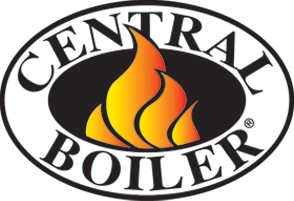
Why does a portable heat pump smell like sulfur?
Portable heat pumps are a convenient way to regulate temperature, but sometimes they come with an unexpected downside: a portable heat pump sulfur smell. It has such an unpleasant smell that it might worsen the mood of the people and spaces of any room and may point to something wrong somewhere. Here, we’ll cover 10 potential causes of your portable heat pump sulfur smell, plus practical ways to fix it in this article.
1. Buildup of Bacteria and Mold
The most widespread cause of this problem is the build-up of bacteria and mold inside the portable heat pump. The warm, wet conditions in the heat pump cabin are conducive to microorganism growth, giving off a foul, sulfur smell.
- Filter and coils should be cleaned often.
- Buy a disinfectant made especially for cooling and heating systems.
- Over time, the PPC will likely develop condensation due to the heat from electrical currents.
2. Clogged Drain Lines
Any obstruction in the drain line will cause water to stagnate in the heat pump, developing mold and mildew. The heat pump system in the stagnant water can give out a portable sulfur-like smell when used for several days.
- Look for noticeable particles obstructing the various drain lines.
- Rinse the line with a half bucket containing vinegar to remove dirt.
- This will help prevent the build-up of water in the unit, hence slow draining.
3. Dirty Filters
Filters that have not been cleaned or replaced often carry dirt, dust, and bacteria. These contaminants can, over time, create a portable heat pump sulfur smell the moment the heat pump is on.
- Filter, which is to be reusable, must be cleaned every month.
- Clean or replace disposable filters every 2 to 3 months.
- Use HEPA filters of good quality in other areas of the house to enhance air quality.
4. Gas Leak Nearby
Portable heat pumps rarely operate using natural gas; however, a leak from a gas source nearby may result in a portable heat pump having a sulfur smell. This is especially so and should be dealt with as soon as possible.
- In case of a smell, switch off the heat pump and leave the area.
- Call your gas supplier for a leak check.
- Minimize the use of gadgets and keep switching off electrical appliances till the problem is sorted out.
5. Dead Animals Inside the Unit
Droppings or carcasses of small animals, such as rodents or insects, may find their way into your portable heat pump before dying, resulting in a sulfur smell when these decompose.
- Open the unit to look for any leftovers.
- Make use of gloves and bet disinfectant to remove and wash the area.
- Barrier off entryways and cracks to avoid further invasions.
6. Electrical Issues
Sometimes, burnt wires or electrical components smell of sulfur or are a light burning of electrical components.
Some scientific works suggest that this could be a clear sign of something seriously wrong somewhere.
- Kuchina uncovered the circuit breakers and shut off the heat pump so that it didn’t continue to malfunction.
- Get a licensed HVAC technician to come and assess and work on the unit.
7. Contaminated Refrigerant
Sometimes, the portable heat pump’s sulfur smell is emitted when the refrigerant is contaminated and dirty. This issue usually needs expert attention.
- Call an HVAC contractor and set a maintenance session.
- Has the refrigerant changed or recharged?
- Always make sure that the sealing is good to avoid similar occurrences in the future.
8. Poor Room Ventilation
If the room is closed, all the odors are trapped, worsening the portable heat pump’s sulfur smell.
- Use a window or a door to create proper air circulation.
- Get another air purifier to act as an odor eliminator.
- For the heat pump with cover, try moving it to a well-ventilated area.
9. Cleaning Product Ingredients That Remain on Surfaces
There are instances where the portable heat pump’s sulfur smell has to do with cleaning materials used in the surroundings or on the heat pump.
During the operation of the heat pump system, particularly heating, these unpleasant odors can be circulated in the house.
- Do not expose the unit to abrasive chemicals. –Surface with a neutral cleaner to remove any fingerprints, smudges, or dust particles in the area.
- If the smells remain in the room, run the heat pump on the fan setting.
10. Manufacturing Defects
A portable heat pump can sometimes have manufacturing flaws that lead to unpleasant unpleasant smells. This is even more common with models of low quality or with models designed with poor artistry.
- You have to check the warranty and then consult the manufacturer.
- It may be economical to replace it with an original brand because it will not often develop a problem.
- Some models have specification inbuilt functions to eliminate odor.
Simple Preventive Measures that You Need to Take
Avoiding such problems can help you avoid working with a portable heat pump with a sulfur smell issue. Here are some tips:
- Regular Maintenance: Filters, coils, and coil drains require monthly cleaning.
- Proper Installation: Ensure the heat pump is in a proper ventilation system.
- Dehumidifiers: Take a dehumidifier in those areas that get humid to remove excess humidity.
- Inspect for Leaks: Periodically, look for the refrigerant or the gas leakage.
- Upgrade Filters: You should use higher quality filters to make the air as clean as possible and to eliminate the bacteria that cause the unpleasant sulfur smell.
Avoiding any incidents that may cause you to deal with the smell of a portable heat pump’s sulfur.
Conclusion
Having a portable heat pump that smells like sulfur is not just a nuisance; something more significant may be happening. When you know the cause and apply the proper remedy, comfort can be regained in your home, and your heat pump’s lifespan will be preserved. This portable heat pump sulfur smell is not easily addressable and can be quickly prevented in the future if necessary maintenance and precautions are not taken.
FAQs on Portable Heat Pump Sulfur Smell
Q1. Is using a portable heat pump safe if it produces an unpleasant smell of sulfur: health risks?
If exposure to the portable heat pump sulfur smell is extensive, it could mean mold, bacteria, or gas leaks, which are unhealthy for your health. Address the issue promptly.
Q2. When should I clean my portable heat pump so it won’t have molds and weird smells?
It is recommended that the filters and coils should be cleaned at least once a month. Check the drain lines and the entire portable heat pump at least every quarter, and do it frequently if you notice the sign of a portable heat pump sulfur smell.
Q3. Can a new portable heat pump smell like that?
There may be a slight odor since some units still have residues from the manufacturing process. If it smells like sulfur, then it will be best to contact the manufacturer as this could be a portable heat pump sulfur smell.
Q4. Is it safe to clean my portable heat pump using vinegar?
Indeed, cleaning drain lines and destroying bacteria with a solution of water and vinegar will help remove a portable heat pump’s sulfur smell.
Q5. What should be done if the sulfur smell persists after cleaning?
If the portable heat pump sulfur smell problem continues, you should call an HVAC technician. If there were faint smells, episodes of weird odors might define underlying troubles such as contaminated refrigerant or electrical breakdown.
Do you have questions, or are you ready to start your next project? Explore our services at Elite Comfort Experts!









